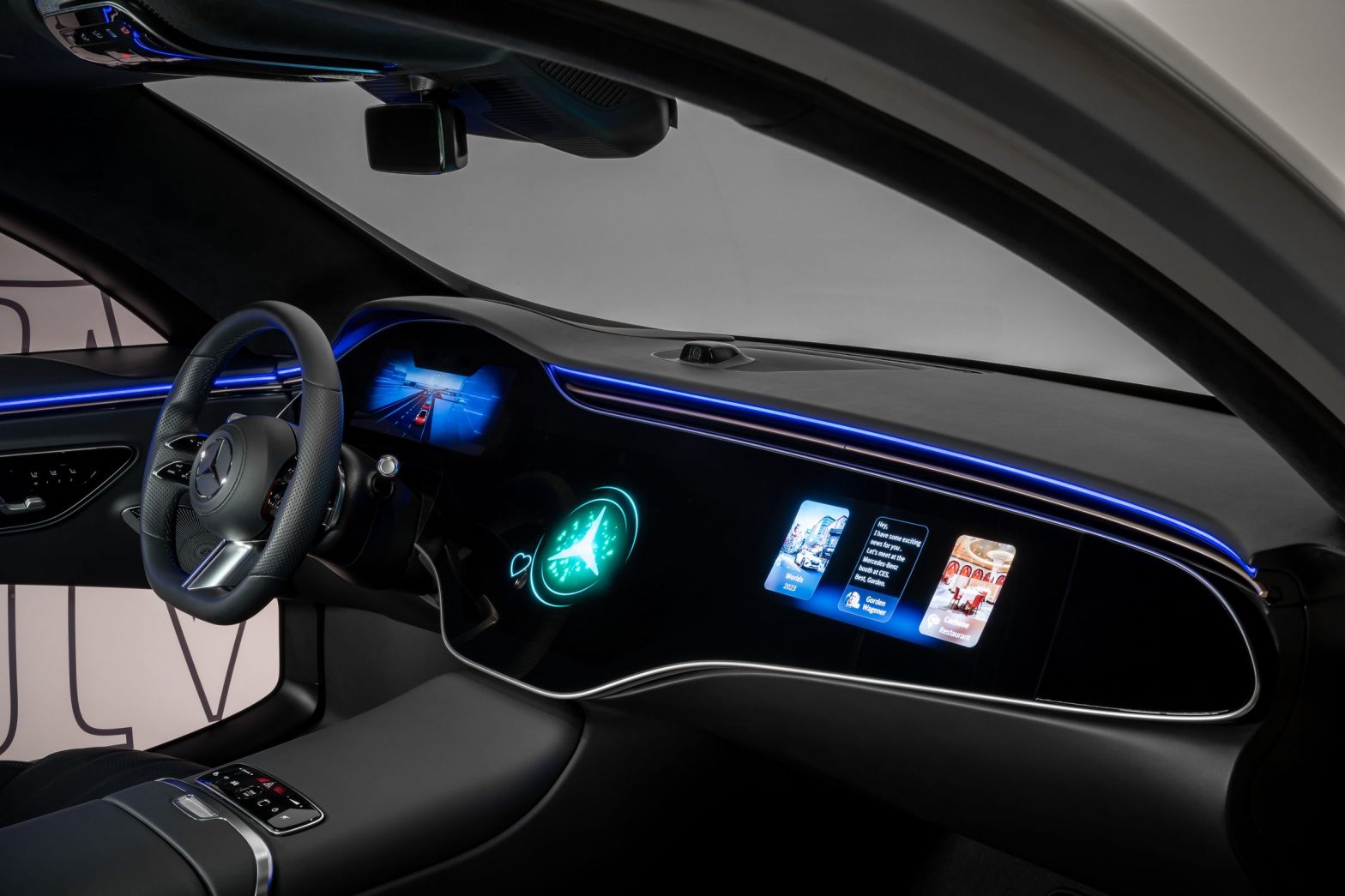/
The automaker’s MBUX voice assistant purports to use large language models to enable more ‘human-like’ interactions.
Share this story
:format(webp)/cdn.vox-cdn.com/uploads/chorus_asset/file/25209157/24C0021_001__1_.jpg)
Mercedes-Benz is supercharging its in-car voice assistant with generative AI, paving the way for more natural interactions and personalized driver experiences.
The automaker’s upgraded MBUX Virtual Assistant will run on the next-generation MB.OS operating system to create “the most human-like interface with a Mercedes-Benz yet,” the company says. Examples include predictive behavior, like playing the morning’s news headlines upon entering the vehicle or offering to dial into a meeting if the vehicle owner’s calendar indicates they are running late for a meeting.
Mercedes vehicles already have voice-command capabilities, allowing drivers to use the phrase, “Hey, Mercedes,” followed by a short command to do things like adjust the temperature in the vehicle, find a navigation destination, or place a phone call.
Generative AI could make these queries more natural and less prone to false positives — theoretically. ChatGPT and other large-language model (LLM) chatbots have been known to serve up false information and OpenAI is being targeted in a number of defamation and copyright infringement lawsuits. Mercedes won’t say which company it is working with to update its voice assistant.
Mercedes and other automakers are trying to get out in front of the AI boom that’s exploding across the tech industry. Companies like Volkswagen, BMW, and Hyundai are promising more sophisticated, in-car voice assistants bolstered with the same LLMs that power the most popular chatbots.
The German automaker has what many consider to be one of the most capable voice assistants in MBUX, which was first introduced in 2018 and is short for “Mercedes-Benz User Experience.”
The voice assistant’s speech will rely on an LLM for natural dialogue and answers to customer questions. It will also feature four “personality traits”: natural, predictive, personal, and empathetic. “The effect is more like a conversation with a friend,” the company claims. “The assistant answers questions based on general knowledge and can also ask intelligent questions to clarify intent and draw conclusions.”
:format(webp)/cdn.vox-cdn.com/uploads/chorus_asset/file/25209163/24C0021_005.jpg)
The assistant can be customized to fit the driver’s preferences, including tone and speaking style. Want something more empathetic for those days when traffic is making you late? The MBUX assistant will be there for you.
Among its many suppliers, Mercedes relies on Nvidia for its water-cooled chips to power its MB.OS system. The San Jose-based company has been developing high-powered GPUs and auto-grade systems-on-a-chip for a number of car clients, enabling features such as advanced driver assist, in-car graphics, and AI.
Mercedes-Benz spokesperson Cathleen Decker declined to name the specific company that was supplying its generative AI technology. “The company works with a range of technology partners to develop and implement the latest advancements in artificial intelligence and natural language processing,” she said in an email. “Mercedes-Benz is committed to working with the best partners in the industry to ensure that the MBUX system remains at the forefront of automotive technology.”
Previously, Mercedes said it was testing OpenAI’s ChatGPT for its cars, but today’s press release makes no mention of the buzzy chatbot. The company said it was interested in evaluating ChatGPT’s ability to help drivers get answers to complex questions while keeping their hands on the wheels and eyes on the road. Volkswagen announced yesterday its plan to install ChatGPT in its cars starting later this year.
In-car distractions are at an all time high. But rather than try to limit the amount of technology being crammed into cars, automakers are increasingly turning to more high-tech fixes to encourage drivers to stay focused on the road.
Mercedes says the first cars with MB.OS are coming with the automaker’s upcoming Mercedes Modular Architecture, or MMA, which is slated for 2025. The company’s Concept CLA, which had its North American debut at CES in Las Vegas this week, offers a sneak peak at what these vehicles will look like when close to production.
In addition, Mercedes is adding more videoconferencing and streaming options to its cars, including Microsoft Teams and Sony Pictures Ridevu. And a new feature called Surround Navigation offers better situational awareness presented as 3D graphics on the infotainment display powered by Unity’s game engine.
For instance, it shows the type of traffic, be it another car, van, truck or even a cyclist. It shows pedestrians close to the roadside as well as potential hazards. And it superimposes route guidance into a realistic representation of the surroundings – particularly helpful in busy urban environments.
